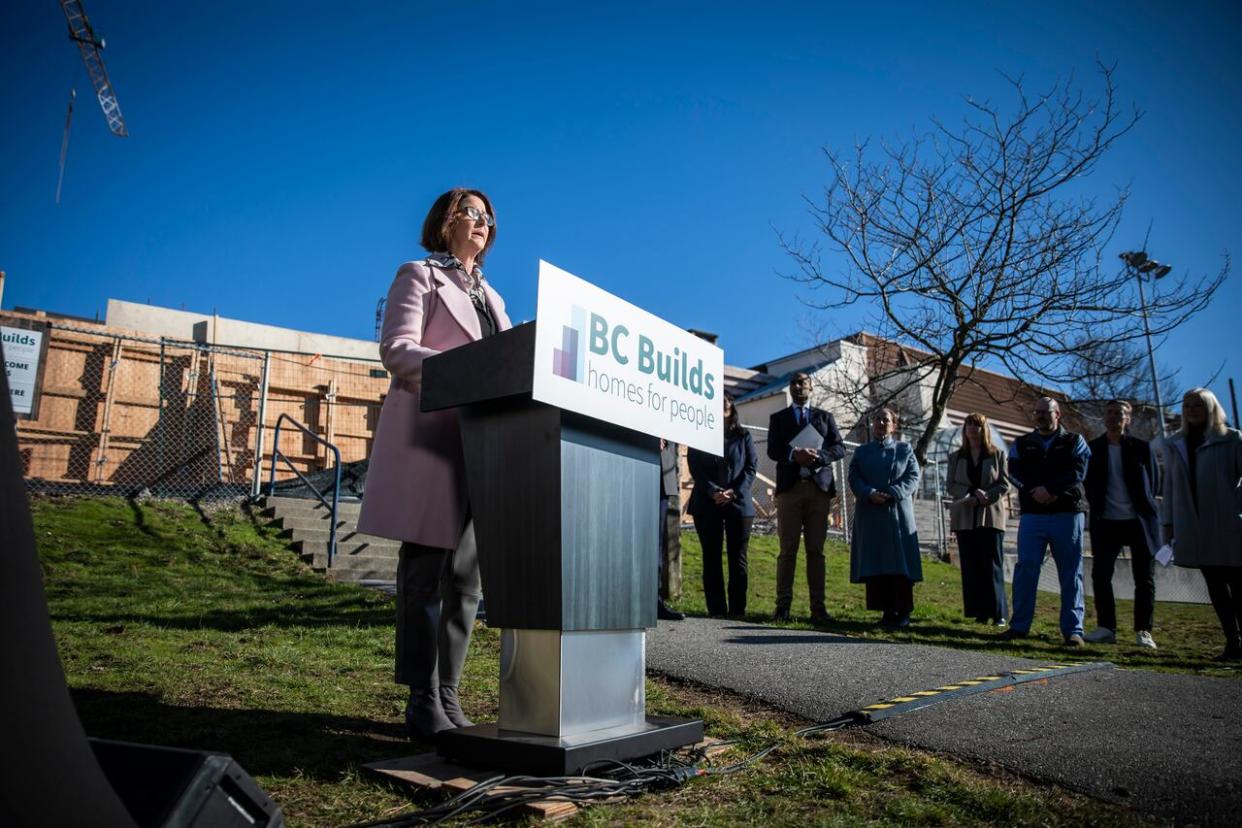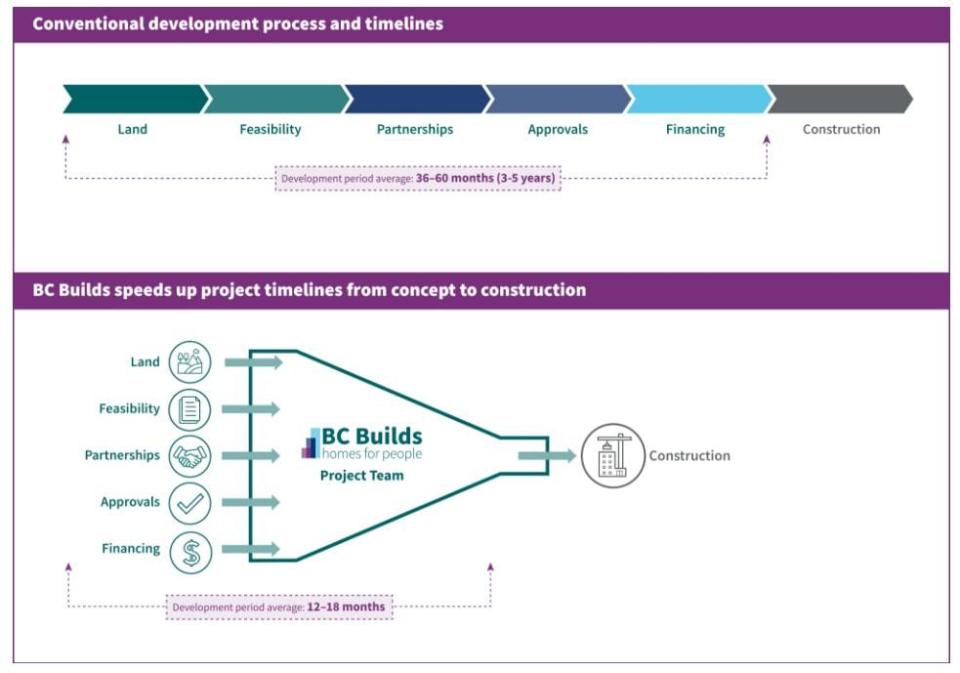How B.C. plans to build rental housing for middle-income earners in half the time

A new provincial housing program will need the support of municipalities if it's to deliver much-needed projects from conception to construction in 12 to 18 months, rather than the conventional three to five year timeline, say homebuilders.
B.C. Builds is the latest program from Premier David Eby's NDP that would have thousands of rental homes built on under-used public land, which would then be provided to under-served, middle-income earners living in those communities.
The $950 million program, with a further $2 billion to hand out in low-cost financing for projects, aims to bring down building costs, speed up the development process and offer low-cost land, financing and grants.
In announcing the initiative Tuesday, the premier, ministers and municipal leaders tried to address one of the central criticisms to building the province out of its current housing crisis. Move-in ready units are too long in the making to provide relief to residents facing acute pressure now.
"In Canada, we have really long development timelines," said Virginia Holden, executive director with the Greater Victoria Housing Society, which manages, owns and operates low and moderate-income housing as a non-profit. "South of the border, 12 to 18 months to two years can be kind of normal. Here, we look at minimum three to five years, often longer."
What Holden is describing is a process whereby organizations like her's must acquire land, conduct feasibility studies, seek permit approvals with municipalities and obtain financing before shovels go in the ground.
B.C. Builds promises to combine all those requirements in a centralized way, akin to a tech or start-up accelerator, with staff from the program to do earnest facilitation with all the parties at regular intervals to greatly speed up decisions and actions around the steps.
Architects of the B.C. Builds program say the province has approved funding to hire 39 staffers to work on projects with non-profits, First Nations and municipalities, who will be the owners and operators of the builds.

A graphic from the B.C. Builds website that shows how the acceleration process would cut the development time in half. (Submitted by the Government of B.C.)
"The expertise with that team and at that table is amazing and their willingness to move things forward is incredible," said Jodee Dick, who is the executive director of the Khowutzun Development Corporation in Duncan on Vancouver Island.
Its building project, for a four-to-six storey, wood-frame building with 199 units was profiled as one of 20 initial B.C. Build sites.
With construction expected to begin later this year, Dick said weekly meetings with B.C. Builds staff and other partners would help make the project work within the program's timelines.
"Everyone on that side has really put their mind to finding a way through that red tape and being able to roll out a program that really can deliver and I've seen that firsthand," said Dick.
Municipal priorities
Still some of the initial projects being touted under B.C Builds had some significant things go in their favour for expedited timelines.
The Cowichan Tribe project is on reserve land, which has its own development process already streamlined, said Dick.
In North Vancouver, another project which will offer 180 units in an 18-storey, mass timber building was rezoned by the city before the project materialized in partnership with non-profit real estate developer Catalyst because the city had a vision for the site as a housing hub.
North Vancouver "went through the process of doing that internal rezoning themselves, rather than waiting for a proponent or this day to come along and then adding that additional rezoning process to the front of the project," said Luke Harrison, the Catalyst president.
Harrison and others say that for B.C. Builds to successfully deliver its expedited timelines, it will need municipalities to prioritize these types of housing developments for rezoning or permits over others on often long lists, demanding attention.
"Typically, municipalities are dealing with lots of demands on their times for approvals ... design work and everything else," Harrison said, adding they'll have to consider what's most critical.
"Is it some form of public infrastructure outside of housing, like a daycare for instance, or something else, or is it affordable housing?"

